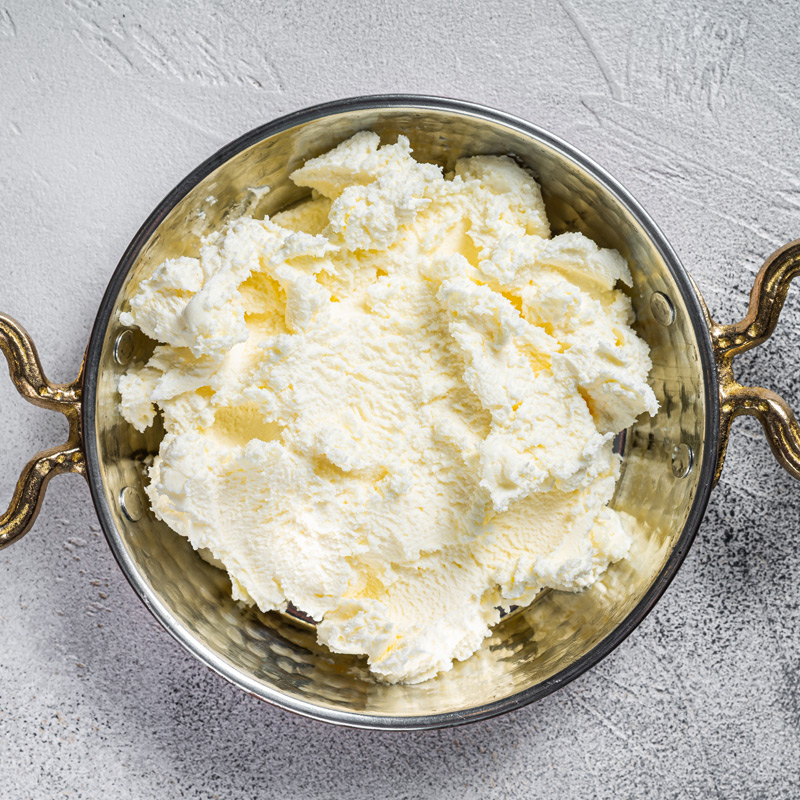
100 gr |
-- |
|
|---|---|---|
| Carbohydrate (gr) | 15.04 |
4928.47 |
| Protein (gr) | 3.59 |
1176.23 |
| Fat (gr) | 12.46 |
4083.43 |
| Fiber (gr) | 1.36 |
445.97 |
| Cholesterol (mg) | 14.64 |
4795.8 |
| Sodium (mg) | 325.27 |
106557.75 |
| Potassium (mg) | 392.16 |
128471.4 |
| Calcium (mg) | 78.15 |
25603.27 |
| Vitamin A (mg) | 46.04 |
15084.01 |
| Vitamin C (mg) | 6.16 |
2019.31 |
| Iron | 0.62 |
203.1 |
Curd, a concentrated dairy product, is celebrated for its dense nutritional profile despite its compact volume.
The calories of fresh curd are 90 calories per 100 grams.
Originating from fermented milk or yogurt, curd encapsulates the core nutrients found in dairy, including:
With a calorie range of 105–120 kcal per 100 grams, curd provides a substantial energy boost, making it an excellent addition to balanced diets. It’s particularly useful for athletes or individuals requiring high-energy diets.
Fresh curd distinguishes itself from other dairy products by its lower calorie content and impressive nutrient density. It is rich in:
Curd is versatile and can be used in various dishes:
While curd offers numerous benefits, it is high in salt, which may not suit individuals on low-sodium diets. Consuming it in moderation ensures you gain its benefits without adverse effects.